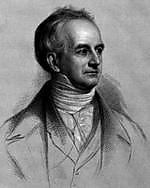|
| Affiliation | Whig |

|
| |
1856-01-01 |
|
|
| Name | Abbott Lawrence |
| Address |
, Massachusetts , United States |
| Email | None |
| Website | None |
| Born |
December 16, 1792
|
| Died | August 18, 1855
(62 years)
|
| Contributor | Thomas Walker |
| Last Modifed | Juan Croniqueur
Oct 22, 2023 02:20am |
| Tags |
|
| Info | Abbott Lawrence (Dec. 16, 1792 - Aug. 18, 1855)
Abbott Lawrence was a merchant, manufacturer, diplomat, statesman and philanthropist. He was one of seven children, the fifth son of Samuel and Suzanna Parker Lawrence. He was born and brought up in Groton, Massachusetts. His father was a Minuteman who fought at Bunker hill and lived to take part in the celebration 50 years later.
In 1808, Abbott was sent to apprentice with his brother, Amos, as a merchant. In 1814, when he became of age, he was admitted to the partnership and the firm of A & A Lawrence was founded. This business was considered to be a tower of strength among the businessmen of Boston. In 1831 Abbott became the principal member of the firm and continued until his death.
Abbott was considered Boston's leading merchant during the time when Massachusetts enterprise and capital were turning inland from the sea and manufacturing was supplanting trade and navigation. This reputation can be attributed to Abbott's quick decision-making and promptness in action. He was also known for his buoyant disposition and great physical energy.
The business of A & A Lawrence specialized in importing English dry goods. When peace was restored after the War of 1812, Abbott Lawrence hastened to England to purchase a large stock of goods. He was able to get these products to Boston before his competition and sell them at a hefty profit. As time progressed, the business became interested in selling products of the new cotton and woolen mills which were springing up in New England. In 1830, they began associating themselves with the Lowells, Appletons, Jacksons and other rising manufacturers. They became active in the development of New England industry. In 1845, Abbott Lawrence took the lead in the foundation of the Town of Lawrence which bears the family name. This textile city became the rival of Lowell, founded a quarter of a century earlier.
In 1835, Abbott Lawrence became the leader in advocating the extension of the Boston-Worcester road over the Berkshires to Albany, and the success of the Western Railroad. He was one of the first to appreciate the importance of steam railroads and promote their construction.
In 1845, he was active in promoting the construction of municipal water works despite the opposition of those interested in the private exploitation of the supply of water. After heavy competition, the advocates of municipal ownership prevailed, to the great gain of the city.
Abbott Lawrence's business efficiency, aptitude for political affairs, and public spirit made him a favorite among Boston merchants and manufacturers. The Lawrences were slow to give up their belief in the wisdom of a policy of freedom of trade. After adoption of the Protective Tariff Act of 1824, it became apparent that it was useless to oppose what appeared to be a favorite policy with the rest of the country.
In 1827, Abbott Lawrence was one of a seven man delegation sent to the famous Harrisburg Convention to discuss measures for promoting the interests of domestic manufacturers, and in 1834 and 1838, he accepted election to the Congress as the representative of Boston. In Congress he was an active and influential member of the Ways and Means Committee. He was an ardent Whig and attended the 1844 National Convention as a delegate and was a leading candidate for the Vice Presidential nomination in 1848. He was offered two cabinet posts --Secretary of the Navy and Secretary of the Interior-- but declined both. He later became Minister to Great Britain for three years. In 1852, he resigned to give more attention to his private business.
Abbott Lawrence was a man of firm religious belifs, much like his mother and brothers. He became very interested in the works of education and charity. He was active in the religious movement that produced New England Unitarianism. He was a generous benefactor to the Groton Academy, where he received his early education. As he grew older, he became deeply interested in promting science education, especially at Harvard College. He supported the work of Louis Aggassiz and founded chairs at Harvard for the teaching of natural science. In 1847, he gave fifty thousand dollars to the establishment of a School of Science. The school was called the Lawrence Scientific School. Lawrence was also an advocate for the improvement of the living conditions of the laboring population and left fifty thousand dollars for the construction of model lodging houses for wage earners in Boston. In addition to being a philanthropist, Lawrence was also a successful family man.
His wife, whom he married on June 28, 1819, was Katherine Bigelow, the eldest daughter of Timothy Bigelow of Medford, Massachusetts. Mr. Bigelow was a distinguished lawyer, who served for many years as Speaker of the Massachusetts House of Representatives. Abbott Lawrence had seven children - five sons and two daughters, of whom all but two sons survived their father.
[Link] |
 | BOOKS |
 |
|
| Title |
Purchase |
Contributor |
|
| Start Date |
End Date |
Type |
Title |
Contributor |
|
| Date |
Category |
Headline |
Article |
Contributor |
|
 | INFORMATION LINKS |
|
|
|

